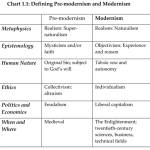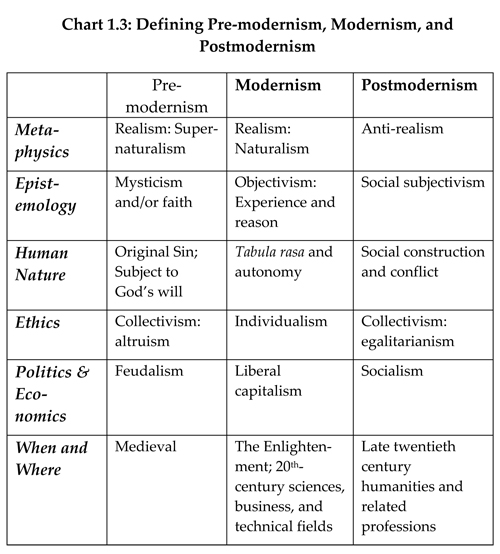 Following up on an earlier post contrasting modernism with pre-modernism, I here contrast post-modernism to both.
Following up on an earlier post contrasting modernism with pre-modernism, I here contrast post-modernism to both.
Postmodernism as a philosophical system is defined by means of its characteristic claims in the five major branches of philosophy: metaphysics, epistemology, human nature, ethics, and politics. Postmodernism as a historical movement is defined by the time of its formulation and most vigorous activity.

[This chart is from Chapter 1 of Stephen Hicks’s Explaining Postmodernism: Skepticism and Socialism from Rousseau to Foucault (Scholargy Publishing, 2004, 2011). The full book is available in hardcover or e-book at Amazon.com. See also the Explaining Postmodernism page.]
The Achilles heel of the epistemology of modernism is the doctrine of “justificationism” which sets an impossible standard of “justified true belief”. A helpful response is the “conjectural” and “objectivist” turn of Critical Rationalism, led by Karl Popper from the 1930s. This has been almost entirely neglected in the debate over postmodernism, partly due to the very low profile of Popperism in the US as a result of the dominance of logical empiricism, planted by the central European diaspora (Hitler’s revenge?). A thumbnail of this response can be seen in this response to deconstructionism in literary theory.
http://www.the-rathouse.com/bartdeconstruct.html